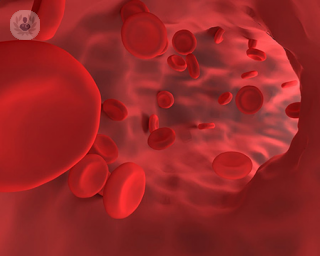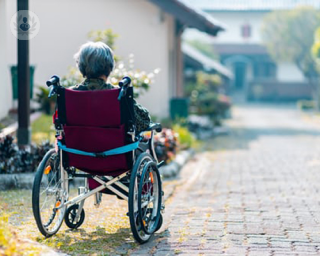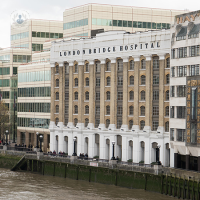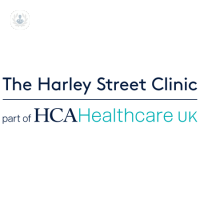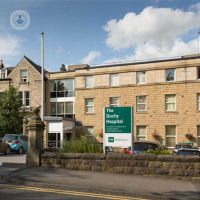Peripheral arterial disease
Mr Paritosh Sharma - Vascular surgery
Created on: 07-16-2013
Updated on: 08-08-2023
Edited by: Aoife Maguire
What is peripheral arterial disease?
Peripheral arterial disease is the obstruction of the arteries that do not supply the brain or the heart. It is most common in the legs but other arteries can be affected as well. The arteries narrow and harden (arteriosclerosis) making blood circulation difficult. It is a common pathology that affects, above all, men over the age of 50.
What causes peripheral arterial disease?
Risk factors for peripheral arterial disease are:
• High cholesterol
• Diabetes
• Heart disease
• Hypertension
• Haemodialysis patient
• Smoking
Peripheral artery disease occurs when a narrowing of the blood flow caused by an excess of cholesterol and other fats that accumulate on the walls of the arteries occurs. The cause of this disease occurs when plaque remains in the artery wall, blocking the passage of arteries to carry blood to the arms and legs. There is no clear cause of plaque buildup, but there are some conditions that increase the risk to suffer. Smokers or former smokers, as well as diabetics, those with a blood pressure or high cholesterol. Failure to address these episodes can lead to having to amputate the foot or leg.
How is peripheral arterial disease diagnosed?
Some of the tests carried out by the doctor for diagnosis may include:
• Physical examination – the doctor will check to see if there is a weak pulse below a narrowed area of the artery and if there are whooshing sounds that can be heard with a stethoscope. They will check for decreased blood pressure in the affected limb.
• Ankle-brachial index (ABI) – this common test compares the blood pressure in the ankle to the blood pressure in the arm. The doctor may use a regular blood pressure cuff and an ultrasound device to evaluate the blood pressure and flow.
• Ultrasound – these help evaluate the blood flow through the vessels and can identify blocked arteries.
• Angiography – A dye is injected into the blood vessels and allows the doctor to view the blood flow through the arteries. The flow is traced using imaging techniques such as an X-ray. • Blood tests – this is done to measure cholesterol and triglycerides levels to check for diabetes.
How is peripheral arterial disease treated?
There are different types of medications used to treat PAD. These can include cholesterol-lowering medications, high blood pressure medications, medication to control blood sugar levels, to prevent blood clots and there are symptom-relief medications also.
In some cases, surgery or angioplasty may be needed. During an angioplasty, a small hollow tube (catheter) is threaded through a blood vessel to the affected artery. Then a small balloon is inflated to reopen the artery to flatten the blockage and stretching the artery to increase blood flow. Other procedures may include bypass surgery and thrombolytic therapy.



